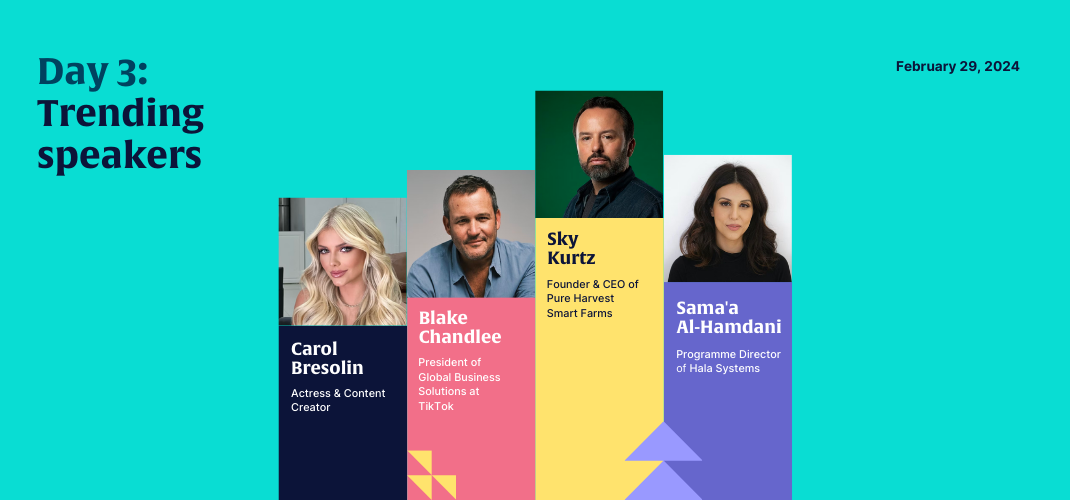
Don’t miss these talks on Day 3 of Web Summit Qatar
Why not try a little of everything on Day 3? From wearables and the future of farming to mega influencer...

We can’t believe the exciting three-day whirlwind that was Web Summit Qatar 2024 has come to an end.
What an incredible few days it’s been, with the latest in deep tech, the most incisive takes on marketing and VC trends, the timeliest of discussions on climate and sustainability, and a slew of impressive startups changing the world.
Relativity Space co-founder and CEO Tim Ellis has ambitions to develop an industrial base on Mars, but says that “going to the moon, going to Mars, space stations, commercial habitats, manufacturing in space… These are really growth trajectories that have a longer time horizon”.
Right now, the big money is in telecommunications infrastructure in space – or, more simply put, satellites. Companies including Amazon, Apple and SpaceX are investing billions to build their own satellite networks, which is creating a demand for launches that exceeds supply.
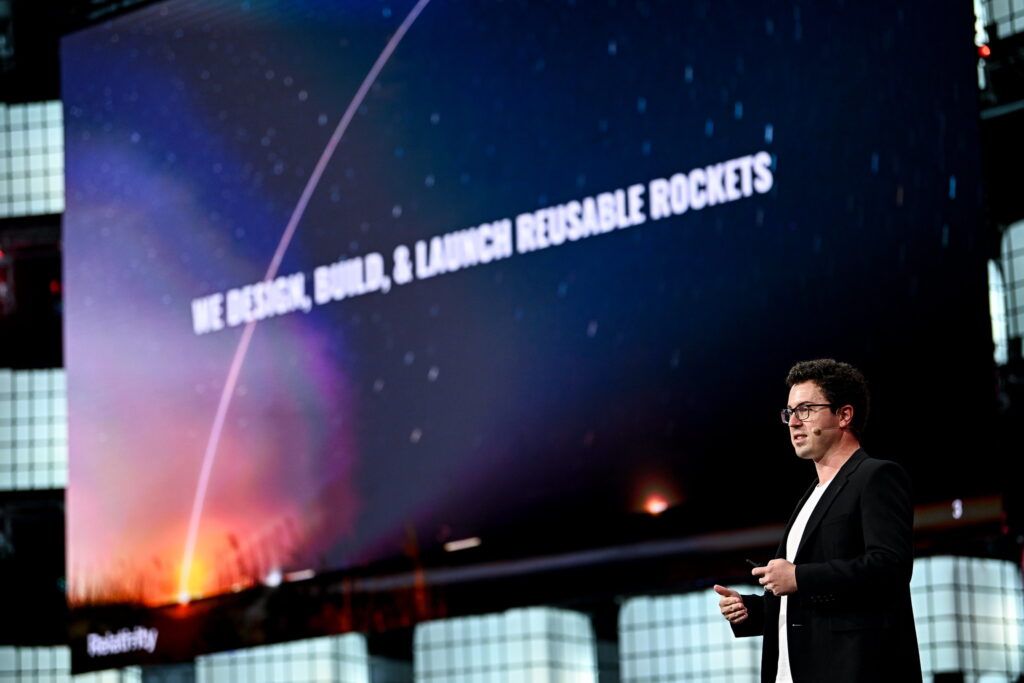 Relativity Space co-founder and CEO Tim Ellis on Centre Stage during Day 3 of Web Summit Qatar 2024. Image: Ramsey Cardy/Web Summit (CC BY 2.0)
Relativity Space co-founder and CEO Tim Ellis on Centre Stage during Day 3 of Web Summit Qatar 2024. Image: Ramsey Cardy/Web Summit (CC BY 2.0)This is where Relativity Space comes into play. Having worked as a rocket propulsion engineer at Jeff Bezos’s Blue Origin, Tim went on to hire 40 percent of Relativity’s employees from SpaceX – including the core team that developed Falcon 9 (the world’s first orbital class reusable rocket).
The space startup is developing a large reusable rocket called Terran R, which is 3D printed using rapid manufacturing techniques, is reusable, and, crucially, has a payload capacity about 40 percent larger than the Falcon 9.
“There are so many satellites that need to be launched that having 40 percent more payload for the same price greatly increases the competitiveness of other customers that want to build their own constellations and satellite networks,” explained Tim.
A long-term vision for a manufacturing base on Mars exists largely because the satellite market won’t slow down any time soon. Relativity Space has already signed US$2.2 billion in customer contracts to date, and is currently negotiating about US$7.5 billion dollars of additional contracts.
“Every three to five years, those satellites are going to die and need to be replaced. And so, every three to five years, you will have a constant stream of launches in order to make up this demand.”
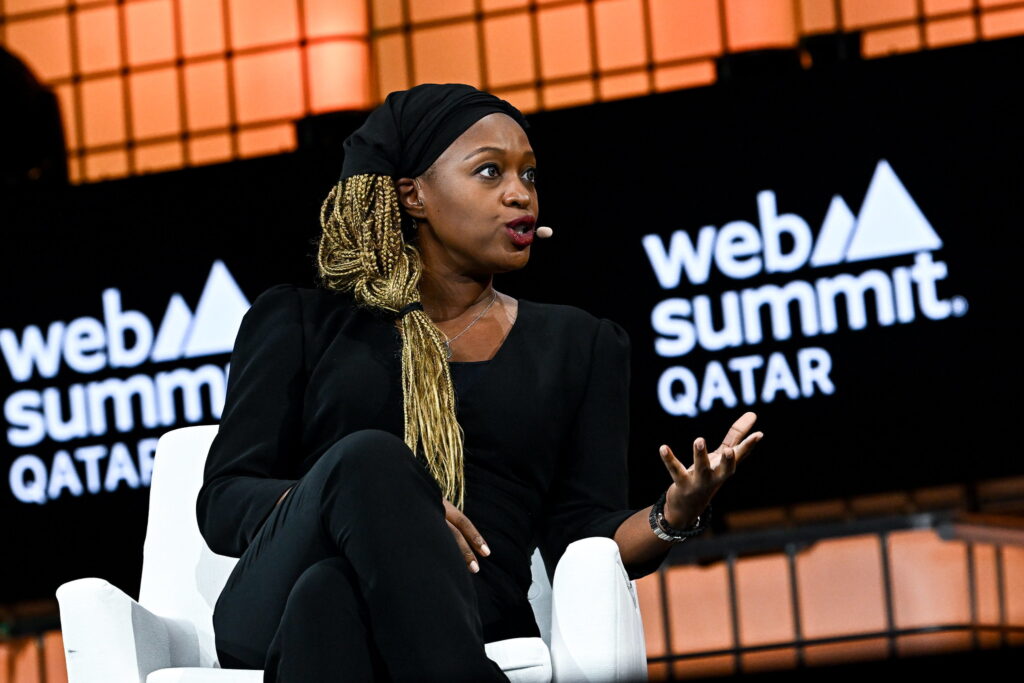 Africa Communications Media Group co-founder and group CEO Mimi Kalinda on Centre Stage during Day 3 of Web Summit Qatar 2024. Image: Ramsey Cardy/Web Summit (CC BY 2.0)
Africa Communications Media Group co-founder and group CEO Mimi Kalinda on Centre Stage during Day 3 of Web Summit Qatar 2024. Image: Ramsey Cardy/Web Summit (CC BY 2.0)Africa is an enormous, diverse, populous continent with myriad cultures, languages and ways of thinking. But in the west, particularly in the US, Africa is often spoken about in singular terms, as though it were one country.
This may be holding back the continent-wide tech scene.
“On the issue of narrative, when we talk about science, we don’t say African science, or US science, or Asian science,” said Johannesburg-based Mimi Kalinda, co-founder and group CEO at Africa Communications Media Group.
“Why is it that African entrepreneurs and tech founders specifically are leading with the fact that we’re African? Is that relevant? I think that we just need to produce really great tech; innovate on the problems not just of Africa, but of the world,” said Mimi.
Indeed, the focus on the concept of African tech is driving investment into just a few African markets – particularly Nigeria, Kenya and South Africa – despite booming economies right across the continent.
Investment is increasingly coming from other markets in the global south, such as Southeast Asia and South America, but AZA Finance founder and CEO Elizabeth Rossiello thinks the real burst of growth will come when African founders succeed and re-invest locally.
“The growth is in front of us. … We need to find the capital within, wait for our founders to get a little richer, and put the money back into the ecosystem,” Elizabeth said. “The next stage is for Africa to export its tech and export its excellence.”
US-based gaming company Breshna has won PITCH, powered by Jusour. The no-code game development platform impressed the judges, seeing off competition from Uzbekistan and the UK on the final day.
PITCH, powered by Jusour, is Web Summit Qatar’s startup competition, bringing together the world’s leading early-stage startups for a live onstage battle. 40 of the 1,043 startups at this year’s event qualified for the three-day competition, which culminated in Breshna taking top prize.
Uzbekistan-based financial services company IMAN and UK-based healthcare solutions business Rhazes finished as runners-up.
Founded two years ago, Breshna has raised “around US$2.5million from investors like Paris Hilton and Randi Zuckerberg”, according to founder and CEO Mariam Nusrat.
Mariam said moments like these are important in the long, hard journey of a founder: “This kind of visibility is really cool.”
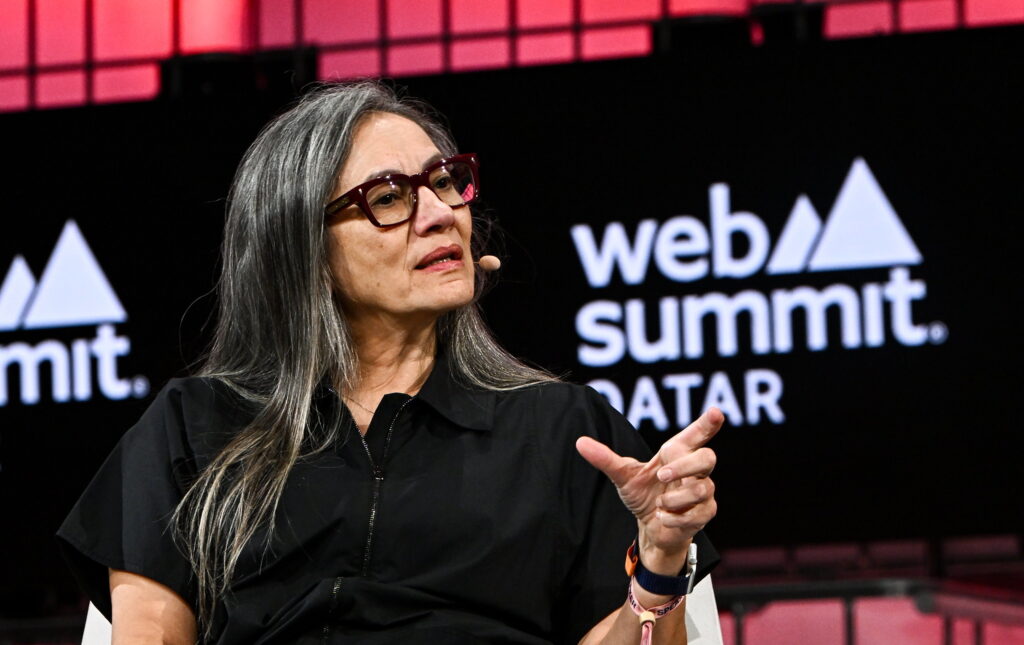 Transform VC general partner Rama Chakaki on Centre Stage during Day 3 of Web Summit Qatar 2024. Image: Ramsey Cardy/Web Summit (CC BY 2.0)
Transform VC general partner Rama Chakaki on Centre Stage during Day 3 of Web Summit Qatar 2024. Image: Ramsey Cardy/Web Summit (CC BY 2.0)In the face of climate change, the narrative that environmental sustainability and economic growth are mutually exclusive is being challenged by innovators including Pure Harvest Smart Farms founder and CEO Sky Kurtz, and Transform VC general partner Rama Chakaki.
“There’s one pillar of sustainability people don’t talk about enough, and that’s profitability,” said Sky, whose climate-forward startup leads globally in tomato production, outdoing both greenhouse and field farming in terms of yield – despite being located in an arid region of UAE.
“In the very beginning of your solution design, you need to be thinking about how sustainability can be a source of competitive advantage in this industry,” added Sky, pointing out that it’s going to be “a tough go” for those relying on billionaire benefactors to foot the bill.
Rama reinforced this, stating that the dichotomy between financial returns and sustainability impact is outdated: “Our thesis, as a fund, is ‘you no longer have to compromise’. You can have an impact entrepreneur who’s a tech entrepreneur as well; who can guarantee both outlier financial and impact returns.”
Rama said that, even though “it’s almost taboo to talk about anything other than the bottom line in Silicon Valley”, Transform VC’s deep tech impact fund takes the impact part very seriously, typically looking for founders that “have been through social and climate challenges themselves”.
Main image of streamers on Centre Stage as Web Summit Qatar comes to a close: Harry Murphy/Web Summit (CC BY 2.0)

Why not try a little of everything on Day 3? From wearables and the future of farming to mega influencer...
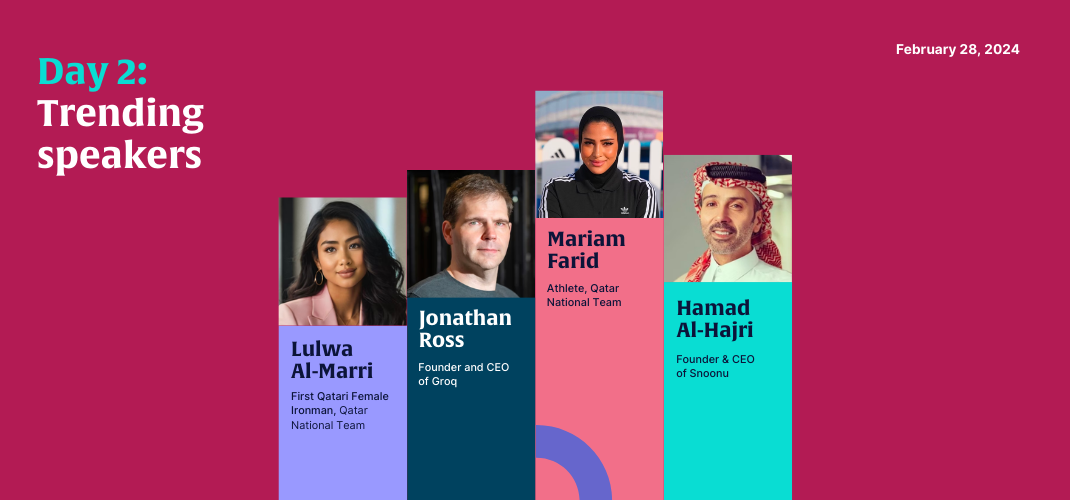
It’s AI, AI, AI on Day 2 of Web Summit Qatar, but what els...